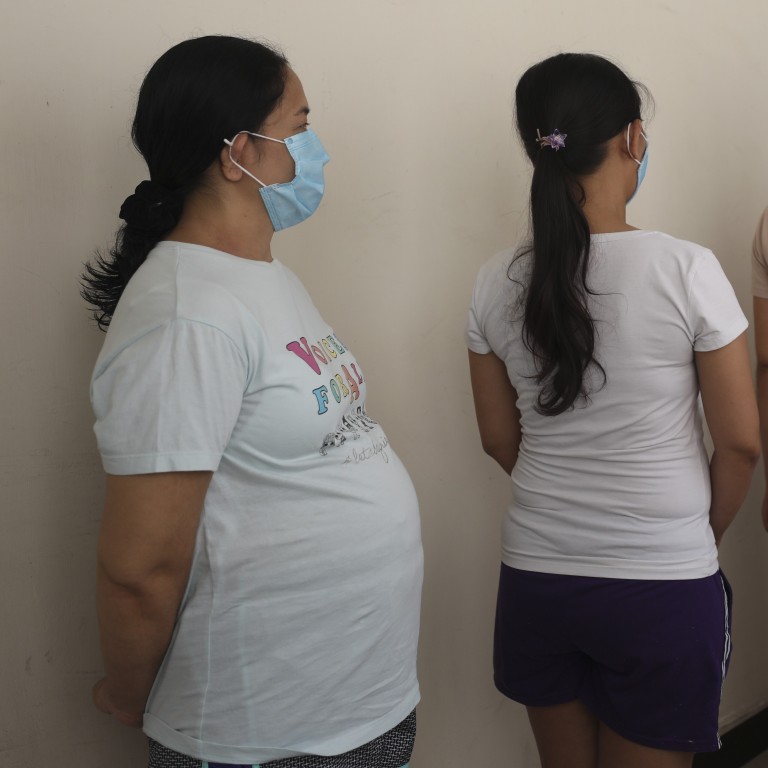
Pregnant, jobless and stranded by Covid-19: domestic workers shelter in a Hong Kong charity’s safe house
- Many Hong Kong domestic helpers lost their jobs amid the Covid-19 pandemic yet have difficulty going home because of travel restrictions and a lack of flights
- Those who quit or were fired after becoming pregnant face high living costs and big hospital bills. A charity’s shelter has given them a safe place to live
Afternoon sunshine floods the three-bedroom flat, the silence broken by the hum of fans labouring against the intense summer heat. In the living room, baby clothes and toys are stacked neatly alongside packets of rice and noodles.
One bedroom is decorated with balloons that were hung up recently to celebrate the arrival of a baby girl, who is sleeping on a baby bouncer. The balloons will stay up for a while: two more babies – also girls – are due later this month. A baby boy will arrive in a few months’ time.
This is a safe house on Hong Kong Island for new and expectant mothers – former domestic helpers from the Philippines and Indonesia stranded in the city after flights from Hong Kong to their home countries were seriously disrupted because of Covid-19.
The pandemic has seen many domestic helpers lose their jobs, and a lot of them are now stuck in the city, says Kuma Chow of PathFinders, a Hong Kong charity supporting migrant mothers that runs the shelter.
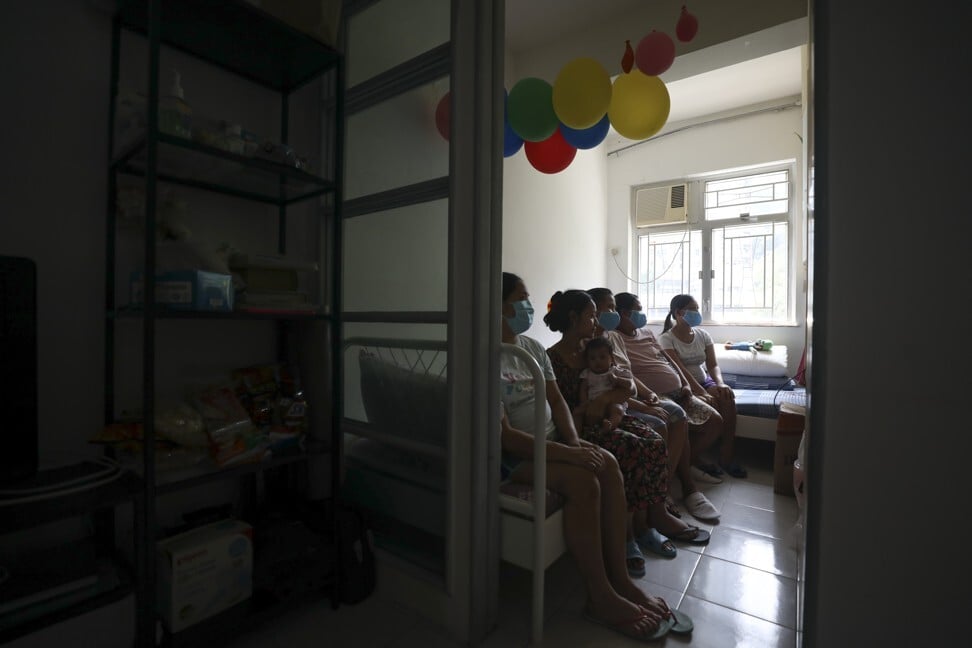
Many have exhausted their savings on accommodation and food as they wait for travel restrictions to be relaxed.
The situation is more dire for pregnant out-of-work helpers, who face high living costs and looming hospital bills.
What Hong Kong can do to stop abuse of domestic helpers
Among those staying at the shelter is Filipino Sarah (not her real name) who is due to give birth at the end of September. She is excited about the arrival of her first child, a girl, but is stressed about not being able to head home to the Philippine island of Cebu for the birth. Sitting on a couch in the sparsely furnished flat, she shares her story.
“My employer got angry when she found out I was pregnant. I had to work, carrying heavy objects, and was tired.”
Sarah quit and was ready to leave Hong Kong when a surge of Covid-19 cases in the Philippines forced the cancellation of her flight. Strict two-week quarantine measures were an added problem.
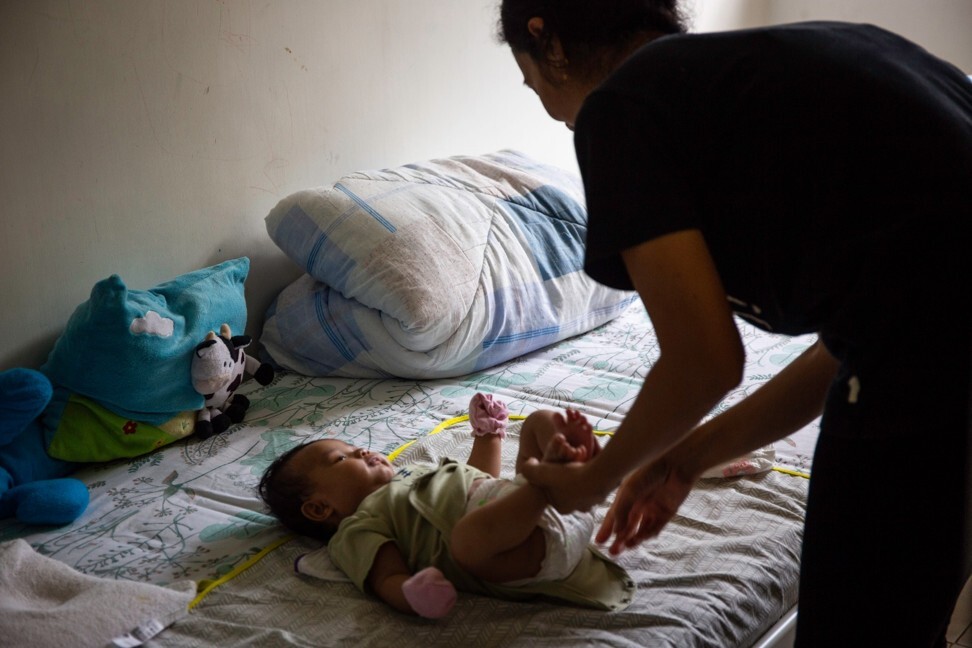
Under Hong Kong government law, foreign domestic workers who have had their contracts terminated must leave the city within 14 days, although visas have been extended in light of Covid-19 travel restrictions, with the government granting extensions to terminated domestic workers at a cost of HK$230 (US$30) per month.
Chow says that without a work visa the women no longer have access to public services, including vital health care. “Without an employer, they face fees that are out of their budget.” The cost of giving birth in a public hospital in Hong Kong for women not eligible for heavily subsidised health care is HK$39,000 with a booking and HK$90,000 with no booking.
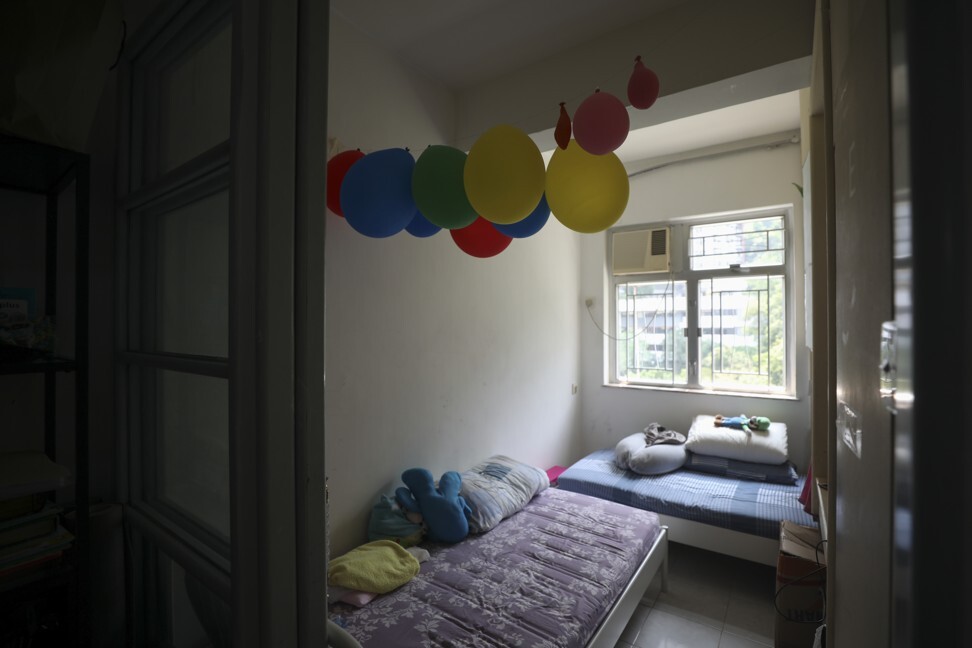
Pregnant foreign domestic workers also face obstacles if employment contracts are unlawfully terminated or if they are pressured to resign. Compounding the problem, says Chow, is a backlog of breach-of-contract and unfair-dismissal cases as a result of law courts being closed during the pandemic.
“Many women do not have the time or money to wait around in Hong Kong until their cases can be heard,” says Chow. “Many also face stigma from their peers in Hong Kong and from family members back home.”
Widi from Indonesia, another guest at the shelter, says that when she discovered she was pregnant her boyfriend urged her to have an abortion. Scared, she went into hiding in a boarding house. Food, accommodation, doctor’s visits and sending money back to her family soon drained her savings. Penniless, she sought help from PathFinders.
“I wanted to return home to be with my family, but the cost of a plane ticket skyrocketed and I could not afford it,” she says. Her sick mother died in the time she has been trying to get home.
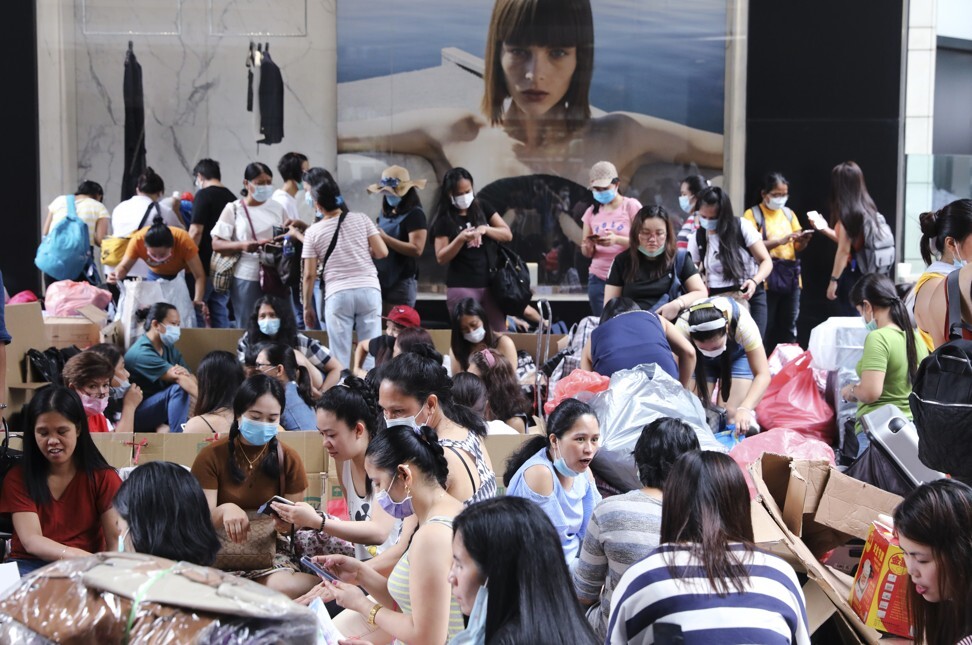
For these women, the shelter has been a godsend. But like many charities in the city, PathFinders has been hard hit by the disruption last year’s anti-government protests and the Covid-19 crisis have brought. It was forced to cancel its annual fundraising dinner that was set to raise HK$3 million.
Chow says PathFinder’s Bridge The Gap fundraising campaign (every dollar is matched until November 30) is vital. To raise awareness about the women’s plight, the charity has launched Listen To Her, an online series where migrant mothers share their stories.
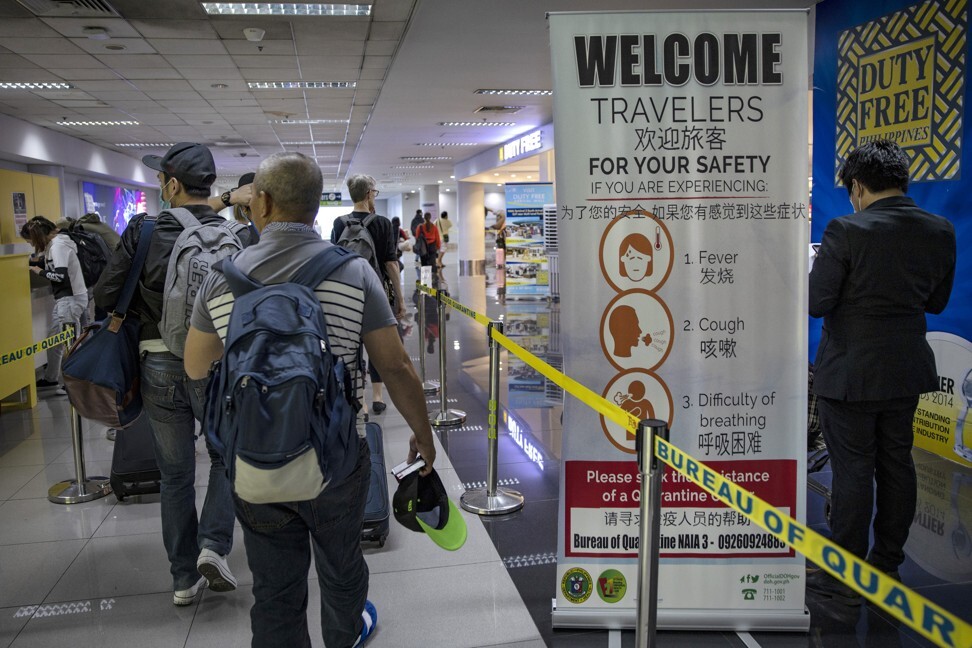
Dolores Balladores Pelaez, chairwoman of Migrante-Hong Kong, a migrants’ rights alliance, says the Philippine and Hong Kong governments need to offer more financial help to foreign domestic workers stranded in Hong Kong.
The Mission for Migrant Workers, a charity helping migrant domestic workers find free temporary accommodation, says demand is spiking from those whose contracts have been terminated, as well as those waiting for labour compensation, or who are between jobs.
An appeal by the mission to help stranded helpers runs until the end of September. It says HK$400 is enough to sponsor for accommodation and food for one worker for a week, while HK$50,000 will support 30 workers to stay in Hong Kong for one month.
For more information: Mission for Migrant Workers and PathFinders’ Bridge The Gap campaign

